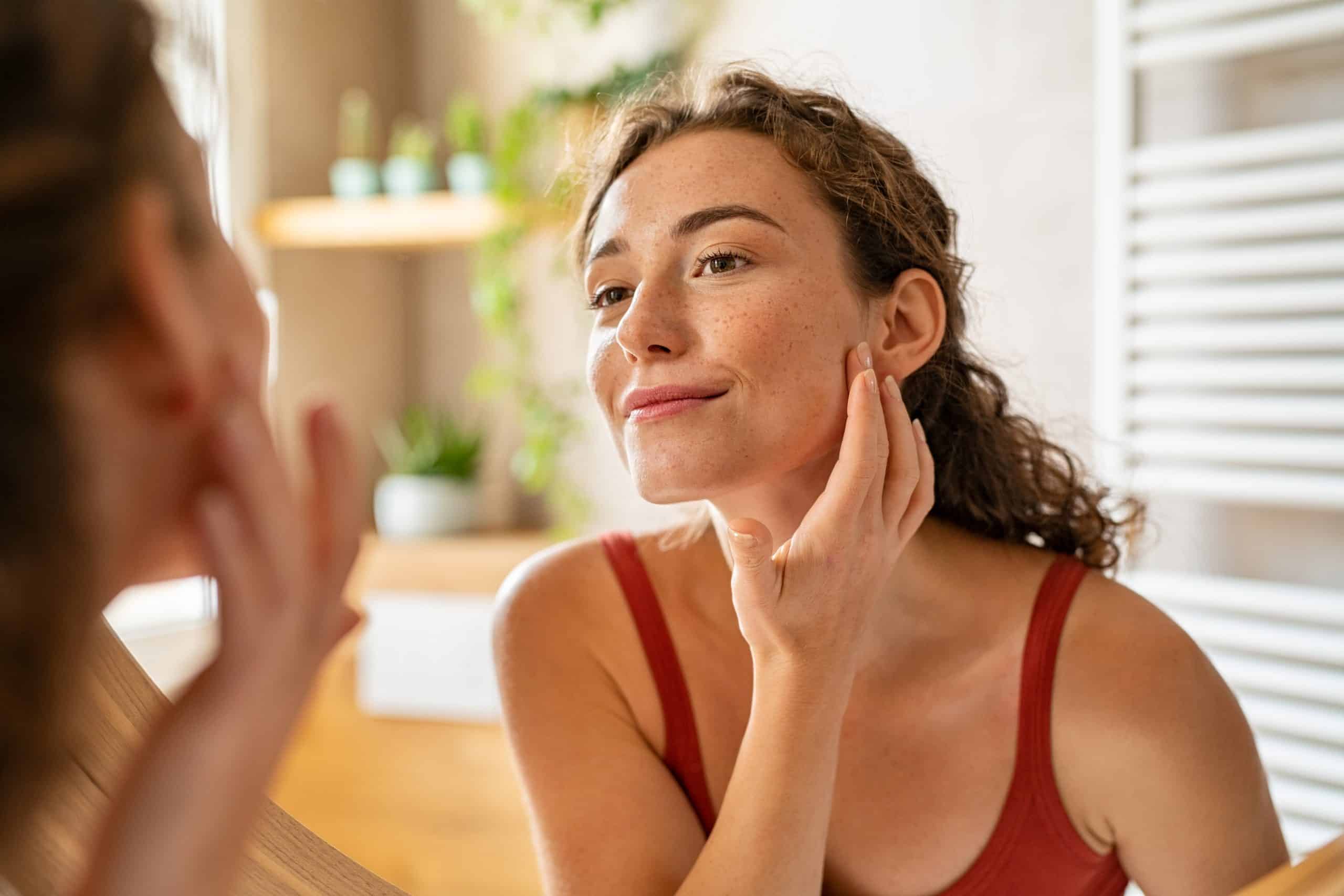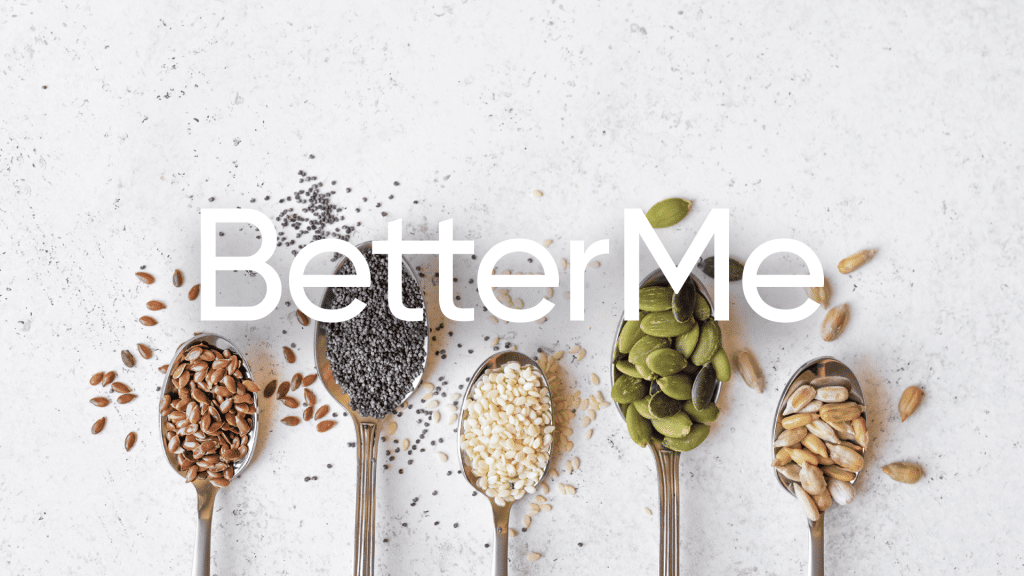Vitamin B5 is an unsung hero in the realm of skin health. This powerful, yet often overlooked nutrient is brimming with benefits that can transform your skin from dull and lifeless to radiant and glowing. Did you know that Vitamin B5, also known as pantothenic acid, is a natural humectant that not only hydrates your skin but also helps it retain moisture? Moreover, this versatile vitamin plays a crucial role in promoting wound healing, reducing inflammation, and even combating signs of aging. Dive into this article for a deep exploration of the hidden wonders of Vitamin B5, and discover how incorporating it into your skincare routine could unleash your skin’s full potential.
What Is Vitamin B5?
Vitamin B5, also known as pantothenic acid, is a water-soluble vitamin that plays a crucial role in various bodily functions. It is an essential nutrient, which means our bodies cannot produce it, and we must obtain it through our diet or supplements. Vitamin B5 is found in a wide variety of foods, including whole grains, legumes, meats, eggs, and vegetables (12).
One of the primary functions of Vitamin B5 is to help convert the food we eat into energy by breaking down carbohydrates, proteins, and fats. It is also vital for the synthesis of coenzyme A (CoA) and acyl carrier protein (ACP), both of which play critical roles in cellular metabolism and the production of fatty acids (11).
In addition to its metabolic functions, Vitamin B5 has gained recognition for its numerous benefits for skin health. It acts as a natural moisturizer, promotes wound healing, reduces inflammation, and helps combat signs of aging. As a result, it has become a popular ingredient in many skincare products, such as creams, lotions, and serums (1).
How Does Vitamin B5 Help Your Skin?
Vitamin B5 offers a range of benefits for your skin, making it an essential component of many skincare products. Here are some of the key ways in which Vitamin B5 helps to improve and maintain healthy skin:
1. Hydration
Vitamin B5 acts as a natural humectant, meaning it attracts and retains moisture in the skin. By doing so, it helps to keep your skin well-hydrated, soft, and supple (15).
2. Moisture Retention
In addition to attracting moisture, Vitamin B5 also enhances the skin’s natural moisture retention capabilities. It strengthens the skin barrier, preventing moisture loss and keeping the skin hydrated for longer periods (15).
3. Wound Healing
Vitamin B5 plays a crucial role in promoting wound healing by aiding in the formation of new skin cells and collagen synthesis. This accelerates the healing process and reduces the appearance of scars (16).
Read More: Unlock The Secret To Luscious Locks With The Benefits Of Vitamin B12 For Hair
4. Anti-Inflammatory Properties
Vitamin B5 possesses anti-inflammatory properties that help to soothe irritated and inflamed skin. It can alleviate redness, itching, and discomfort associated with various skin conditions, such as eczema, acne, and dermatitis (12).
5. Reducing Signs Of Aging
Vitamin B5 can help combat signs of aging by improving skin elasticity and stimulating collagen production (16). This results in firmer, smoother, and younger-looking skin, reducing the appearance of fine lines and wrinkles.
6. Skin Barrier Repair
Vitamin B5 is essential for maintaining a healthy skin barrier, which protects your skin from environmental damage, allergens, and bacteria. A strong skin barrier also helps prevent transepidermal water loss, ensuring that your skin remains hydrated and healthy (15).
7. Oil Regulation
Vitamin B5 can help regulate sebum (oil) production in the skin, preventing excessive oiliness and reducing the likelihood of acne breakouts (10).
Incorporating Vitamin B5 into your skincare routine, either through topical products or dietary intake, can significantly improve the overall health and appearance of your skin. By providing hydration, promoting healing, and combating signs of aging, Vitamin B5 is a powerful ally in maintaining healthy, radiant skin.
How To Use Vitamin B5 For Skin Health
Now that you are aware of the incredible benefits of Vitamin B5 for your skin, it’s time to explore how to incorporate it into your daily routine. There are two primary ways to harness the power of Vitamin B5: through topical applications and dietary sources.
Topical Applications
Many skincare products contain Vitamin B5, including creams, lotions, serums, and facial masks. When choosing a product, look for ingredients such as “pantothenic acid,” “panthenol,” or “provitamin B5.” These terms indicate that the product contains Vitamin B5 in its various forms.
To maximize the benefits of Vitamin B5, consider incorporating products with this ingredient into different steps of your skincare routine:
- Cleanser: Start your routine with a gentle cleanser containing Vitamin B5 to remove dirt, oil, and impurities while maintaining the skin’s natural moisture balance.
- Toner: Follow up with a soothing toner infused with Vitamin B5 to calm and hydrate the skin after cleansing.
- Serum: Apply a Vitamin B5 serum to deliver concentrated nutrients directly to the skin, targeting specific concerns like hydration, inflammation, or signs of aging.
- Moisturizer: Lock in moisture and nutrients with a Vitamin B5-enriched moisturizer, which will help strengthen the skin barrier and keep your skin hydrated throughout the day.
- Facial Mask: Treat your skin to a weekly pampering session with a nourishing facial mask containing Vitamin B5 for an extra boost of hydration and rejuvenation.
BetterMe app will kick you out of the mental funk, shake off your extra weight, rid you off your energy-zapping habits, and help you sculpt the body of your dreams. Intrigued? Hurry up and change your life for the better!
Dietary Sources
In addition to topical applications, you can also obtain Vitamin B5 through your diet. Consuming a balanced diet rich in Vitamin B5 will not only benefit your skin but also support overall health and well-being. Here are some excellent dietary sources of Vitamin B5:
- Whole Grains: Opt for whole grains like brown rice, whole wheat, and oats, which are rich in Vitamin B5 and other essential nutrients (10).
- Legumes: Beans, lentils, and chickpeas are great plant-based sources of Vitamin B5, as well as protein and fiber (10).
- Meats: Lean meats such as chicken, turkey, and beef contain significant amounts of Vitamin B5 (8).
- Eggs: Both the egg yolk and egg white are rich in Vitamin B5, making eggs a versatile and nutritious addition to your diet (8).
- Vegetables: Incorporate a variety of vegetables like broccoli, cauliflower, sweet potatoes, and mushrooms, all of which provide a good dose of Vitamin B5 (8).
By combining both topical applications and dietary sources of Vitamin B5 you can unlock its full potential and enjoy healthier, more radiant skin. Remember that consistency is key when it comes to skincare, so make sure to incorporate Vitamin B5 into your routine regularly to reap its numerous benefits.
Which Skincare Ingredients Work Well With Vitamin B5?
While Vitamin B5 alone offers numerous benefits for your skin, it can also work synergistically with other skincare ingredients to enhance its effects.
By combining Vitamin B5 with complementary ingredients, you can create a powerful skincare routine tailored to your specific needs.
Be sure to patch-test any new products and introduce them gradually to ensure compatibility with your skin.
Here are some common skincare ingredients that work well with Vitamin B5:
Hyaluronic Acid
Hyaluronic acid is a naturally occurring substance in our skin that has exceptional moisture-binding properties. When combined with Vitamin B5, hyaluronic acid helps to further boost the skin’s hydration levels, resulting in plumper, smoother, and more youthful-looking skin (7).
Niacinamide (Vitamin B3)
Niacinamide is another member of the B-vitamin family known for its ability to improve skin texture, reduce redness, and minimize the appearance of pores (9). Pairing Vitamin B5 with niacinamide can offer enhanced anti-inflammatory effects, making this combination particularly beneficial for those with acne-prone or sensitive skin.
Read More: Vitamin K2 Benefits: Why This Little Known Nutrient Is Essential To Your Diet
Vitamin C
Vitamin C is a potent antioxidant that promotes collagen production, brightens the skin, and protects against environmental damage (17). When used alongside Vitamin B5 the two ingredients can work together to improve skin elasticity, reduce the appearance of dark spots, and promote a more even complexion.
Retinol
Retinol, a derivative of Vitamin A, is revered for its ability to increase cell turnover, stimulate collagen production, and combat signs of aging (13). Combining retinol with Vitamin B5 can help soothe any potential irritation caused by retinol while enhancing its anti-aging effects.
Ceramides
Ceramides are lipid molecules that play a vital role in maintaining the skin’s barrier function (3). When used with Vitamin B5, ceramides help to further strengthen the skin barrier, lock in moisture, and protect the skin from environmental stressors.
What Else You Can Do To Complement Vitamin B5 For Optimal Skin Health
While incorporating Vitamin B5 into your skincare routine is undoubtedly beneficial, it’s essential to recognize that achieving optimal skin health involves more than just topical treatments.
Embracing a holistic approach that considers various lifestyle factors can significantly enhance the effects of Vitamin B5, and contribute to overall skin wellness. Here are some key lifestyle factors to consider:
Eat Right For Skin Health
A balanced diet rich in vitamins, minerals, and antioxidants is crucial for maintaining healthy skin (5). In addition to consuming Vitamin B5-rich foods, ensure you include a variety of fruits, vegetables, lean proteins, and healthy fats in your diet.
Proper nutrition will provide your skin with the necessary building blocks to repair, regenerate, and maintain its vitality.
Hydrate, Hydrate, Hydrate
Staying well-hydrated is essential for maintaining the skin’s moisture balance and supporting its overall health (6). Aim to drink at least eight glasses of water per day, and adjust your intake based on factors such as physical activity, climate, and individual needs.
Adequate hydration helps to flush out toxins, maintain skin elasticity, and enhance the effectiveness of skincare products, including those containing Vitamin B5.
Get Quality Sleep
Quality sleep is vital for skin rejuvenation and repair. During sleep, the body produces growth hormones that stimulate cell renewal and collagen production, contributing to healthier, younger-looking skin. Aim for 7-9 hours of uninterrupted sleep each night, and establish a consistent bedtime routine to support your skin’s natural repair processes (4).
Lean and toned up body isn’t just a far-fetched fantasy. Check out the BetterMe app and watch it propel your weight loss journey into high gear!
Go Big On Stress Management
Chronic stress can negatively impact skin health by triggering inflammation, impairing the skin barrier function, and exacerbating skin conditions like acne and eczema (2).
Stress management techniques such as meditation, yoga, deep breathing exercises, or journaling should be incorporated into your daily routine to help mitigate the effects of stress on your skin.
Don’t Forget Sun Protection
Exposure to the sun’s harmful UV rays can cause premature aging, skin damage, and an increased risk of skin cancer (14). Protect your skin by wearing a broad-spectrum sunscreen with an SPF of at least 30 daily, even on cloudy days.
Additionally, consider wearing protective clothing, sunglasses, and seeking shade during peak sunlight hours.By adopting a holistic approach that addresses these lifestyle factors, you can create an ideal environment for Vitamin B5 and other skincare ingredients to work their magic.
A well-rounded, consistent self-care routine will not only enhance the effectiveness of your skincare products but also contribute to overall health and well-being, allowing you to enjoy radiant, healthy skin for years to come.
Debunking Common Myths Surrounding Vitamin B5
As with any popular skincare ingredient, there are several misconceptions surrounding Vitamin B5 that can lead to confusion and misinformation. To help you make informed decisions about incorporating Vitamin B5 into your skincare routine, let’s debunk some common myths and clarify the facts.
Myth 1: Vitamin B5 Is Only Suitable For Dry Skin
Fact: While Vitamin B5 is known for its hydrating properties, making it an excellent choice for those with dry skin, it is also beneficial for various skin types.
Its anti-inflammatory and oil-regulating effects make it suitable for acne-prone and oily skin, while its soothing properties can benefit sensitive and irritated skin. Vitamin B5 is a versatile ingredient that can address multiple skin concerns, regardless of your skin type.
Myth 2: All Vitamin B5 Skincare Products Are Created Equal
Fact: The effectiveness of Vitamin B5 in skincare products depends on factors such as concentration, formulation, and the presence of complementary ingredients.
It is essential to choose high-quality products that contain an appropriate concentration of Vitamin B5 in a stable and well-formulated formula.
Additionally, consider looking for products that combine Vitamin B5 with other beneficial ingredients, as discussed in the previous section, to enhance its effects.
Myth 3: Taking Vitamin B5 Supplements Will Automatically Improve Your Skin
Fact: While consuming a diet rich in Vitamin B5 can contribute to overall skin health, taking supplements may not have the same direct impact as applying the vitamin topically.
Topical application allows the vitamin to be absorbed directly into the skin, targeting specific concerns more effectively than oral supplements.
However, if you suspect a deficiency or have concerns about your Vitamin B5 intake, consult with a healthcare professional before starting any supplementation.
Myth 4: More Vitamin B5 Is Always Better
Fact: While Vitamin B5 is an essential component of a well-rounded skincare routine, using excessive amounts can potentially cause irritation or sensitivity.
It is crucial to follow the recommended usage instructions on your skincare products and introduce new ingredients gradually. Remember that a balanced and consistent approach is key to achieving optimal skin health.
The Bottom Line
Vitamin B5, also known as pantothenic acid, is a highly versatile and beneficial nutrient for maintaining and improving skin health. Its ability to hydrate, soothe inflammation, promote wound healing, regulate oil production, and combat signs of aging makes it an invaluable addition to any skincare routine, regardless of your skin type.
To unlock the full potential of Vitamin B5, consider incorporating it into your skincare regimen through high-quality topical products and consuming a balanced diet rich in Vitamin B5 sources.
Combining Vitamin B5 with complementary skincare ingredients and embracing a holistic approach that addresses lifestyle factors such as hydration, sleep, stress management, and sun protection can significantly enhance its effects and contribute to optimal skin health.
DISCLAIMER:
This article is intended for general informational purposes only and does not address individual circumstances. It is not a substitute for professional advice or help and should not be relied on to make decisions of any kind. Any action you take upon the information presented in this article is strictly at your own risk and responsibility!
SOURCES:
- A novel cosmetic approach to treat thinning hair (2011, nih.gov)
- Brain-Skin Connection: Stress, Inflammation and Skin Aging (2014, nih.gov)
- Ceramides and skin function (2003, nih.gov)
- Circadian Rhythm and the Skin: A Review of the Literature (2019, nih.gov)
- Diet and Skin Aging—From the Perspective of Food Nutrition (2020, nih.gov)
- Dietary water affects human skin hydration and biomechanics (2015, nih.gov)
- Hyaluronic acid: A key molecule in skin aging (2012, nih.gov)
- Pantothenic Acid Fact Sheet for Consumers (2021, nih.gov)
- Niacinamide Down-Regulates the Expression of DKK-1 and Protects Cells from Oxidative Stress in Cultured Human Dermal Papilla Cells (2021, nih.gov)
- Pantothenic Acid (2015, lpi.oregonstate.edu)
- Pantothenic Acid Fact Sheet for Health Professionals (2021, nih.gov)
- Pantothenic Acid – Vitamin B5 (2023, harvard.edu)
- Retinoids in the treatment of skin aging: an overview of clinical efficacy and safety (2006, nih.gov)
- Sun and Skin (2014, nih.gov)
- Skin moisturizing effects of panthenol-based formulations (2011, nih.gov)
- The effect of pantothenic acid deficiency on keratinocyte proliferation and the synthesis of keratinocyte growth factor and collagen in fibroblasts (2011, nih.gov)
- The Roles of Vitamin C in Skin Health (2017, nih.gov)

















